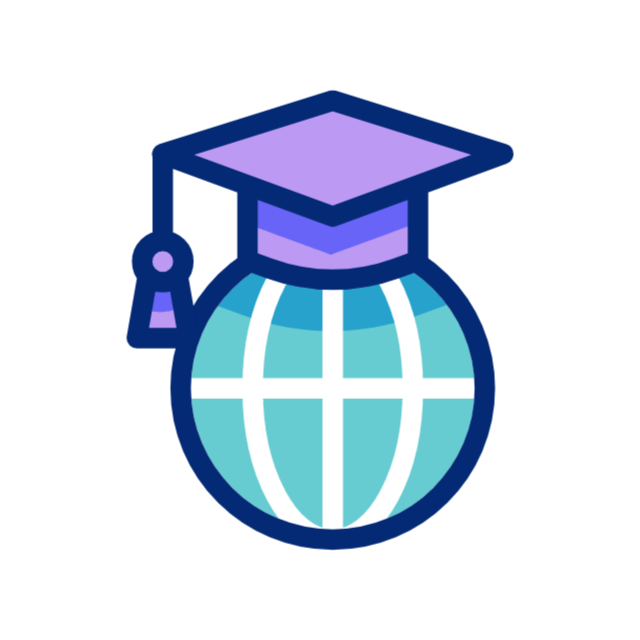
Not Sure What to Do After 12th? Take a Moment – Here's What You Can Do Next
Trust us, if you’re feeling confused, lost, or even overwhelmed, you’re not alone. Millions of students reach this turning point every year with more questions than answers. Whether you’ve completed Science, Commerce, or Humanities, the pressure to make the “right” choice can feel daunting.
But here’s the good news: this moment of uncertainty is the perfect time to pause, reflect, and plan. Rather than rushing into decisions based on peer pressure or family expectations, take a moment to explore the options that truly align with your interests, strengths, and long-term goals.
Let’s dive into what you can do next.
What can you do after the 12th?
1. Start With Yourself: What do you really like?
Before you jump into career paths or college forms, ask yourself some honest questions. What subjects did you enjoy in school, not just score well in, but truly enjoy learning? What kind of work excites you: creative, analytical, people-oriented, problem-solving?
You don’t need to have your entire life figured out, but some self-reflection can save you years of doing something you don’t love.
You can also take:
- Career aptitude tests (many are free online)
- Personality assessments (like MBTI or Holland Code)
- Counseling sessions at school or with a certified career coach
Remember, your interests may evolve, but starting with what you enjoy is always a smart first step.
2. Explore Traditional Degree Programs
Depending on your stream in Class 12, you have access to several established degree programs. These form the academic foundation for many professional careers.
If you’re from a Science background, you can consider:
- B.Sc. in subjects like Physics, Chemistry, Biology, Math, or Computer Science
- Engineering (B.Tech/B.E.) through entrance exams like JEE Main/Advanced
- Medical fields like MBBS, BDS, BPT, or Nursing via NEET
- Pharmacy, Biotech, BCA (for IT careers)
If you studied Commerce, you have options like:
- B.Com (General or Honours)
- BBA / BBM for a career in business or management
- Chartered Accountancy (CA), CS, CMA
- Degrees in Banking, Finance, Economics
For Arts/Humanities students:
- BA in Political Science, Sociology, English Literature, Psychology, etc.
- Mass Communication & Journalism
- Hotel Management
- Law (BA LLB) through university-specific entrance exams
- Social Work, Languages, Fine Arts, and more
3. Look Into Modern & Emerging Careers
The world is changing fast, and so are career options. There are exciting opportunities beyond the traditional academic routes—some of which didn’t even exist 10 years ago.
Here are a few trending and high-growth fields:
- Data Science & AI
- UI/UX Design
- Cybersecurity
- Digital Marketing
- Environmental Science & Sustainability
- Gaming and Animation
- Blockchain Development
- International Relations and Policy
Top private universities and online platforms like Coursera, edX, and up Grad offer courses in these areas. If you’re curious and tech-savvy, these might be a great fit.
4. Consider Short-Term, Skill-Based Courses
Not everyone wants a 3-year degree right away. Some students prefer gaining real-world skills quickly, and that’s completely valid.
Here are a few in-demand diploma and certification courses you can do in under a year:
- Graphic Design
- Digital Marketing
- Video Editing & Animation
- Foreign Languages (German, French, Spanish)
- Event Management
- Culinary Arts
- Photography
- Mobile App or Web Development
These courses are ideal for students who want to freelance, start a business, or join the workforce early. Some even lead to high-paying remote work opportunities.
5. Prepare for Competitive Entrance Exams
If you have a specific profession in mind—like engineering, medicine, law, or civil services—now is the time to focus on entrance exams.
Here are some popular ones:
- Engineering: JEE Main, JEE Advanced
- Medical: NEET
- Law: CLAT, AILET, LSAT India
- Design: NIFT, NID, UCEED
- Management: IPMAT (for IIMs), CUET for central universities
- Defense: NDA, CDS
- Government Jobs: SSC, UPSC (after graduation)
Preparing for these exams requires time and dedication. Some students even take a gap year to focus entirely on preparation, which brings us to the next point.
6. Take a Gap Year (With a Purpose)
There’s a lot of stigma around taking a year off after 12th, but let’s clear the air: A well-planned gap year can be incredibly productive.
What can you do during a gap year?
- Prepare for entrance exams.
- Take internships or part-time jobs.
- Travel and explore new cultures
- Volunteer with NGOs
- Learn a new skill (coding, writing, music, etc.)
- Start a blog, YouTube channel, or passion project.
The key is to use the year wisely. Don’t treat it like a break from life—treat it as a chance to gain clarity, confidence, and direction.
7. Talk to Real People- Mentors, Professionals, Alumni
Sometimes, the best career insights come from real conversations. Reach out to:
- College seniors need to understand what their courses are really like
- Professionals working in careers you’re curious about
- Teachers and counselors who know your academic strengths
Ask them about:
- What their daily work involves
- What they love (and hate) about their field
- What skills are essential to succeed
You’ll be surprised how many people are willing to share their journey and how much you can learn from them.
8. Taking an Online Course After 12th- A Smart Move
Here are the online course which is a great option for both Working professionals and fresh 12th pass out students:
- It’s a flexible and low-risk way to explore different subjects or careers.
- Helps you make informed decisions before choosing a college or long-term course.
- Build real-world, job-ready skills while you’re still figuring things out.
- Great for exploring interests before choosing a degree.
- Flexible, affordable, and beginner-friendly.
- Learn in-demand skills like coding, design, marketing, and more.
- Use your free time or gap year productively while building your resume.
Conclusion
If you’re not sure what to do after the 12th, don’t worry. This isn’t a race, and there’s no perfect route. What matters is that you take time to understand yourself, explore your options, and choose something that makes you feel excited, not anxious.





